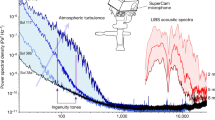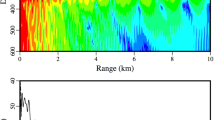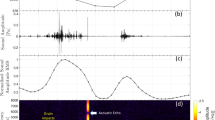Abstract
IN reply to Prof. Alexander McAdie's request (NATURE, April 12) for a means of recording gustiness, I venture to throw out the suggestion that this might be done by observing what in German is called “wimmern”. “Hoert Ihrs wimmern hoch vom Thurn? Das ist Sturm”. This variation in the sounds heard from church bells during gusty weather is due to the irregular velocities in the atmosphere. That part of a whirl of air which moves in the same direction as the sound will increase the pitch of the note heard, and vice versâ. If an instrument could be devised for recording rapid but slight changes of pitch of musical notes, a fairly accurate estimate of the irregularities of atmospheric velocities could be obtained.
This is a preview of subscription content, access via your institution
Access options
Subscribe to this journal
Receive 51 print issues and online access
$199.00 per year
only $3.90 per issue
Buy this article
- Purchase on Springer Link
- Instant access to full article PDF
Prices may be subject to local taxes which are calculated during checkout
Similar content being viewed by others
Author information
Authors and Affiliations
Rights and permissions
About this article
Cite this article
STROMEYER, C. Aeroplanes and Atmospheric Gustiness. Nature 99, 164–165 (1917). https://doi.org/10.1038/099164c0
Issue Date:
DOI: https://doi.org/10.1038/099164c0
Comments
By submitting a comment you agree to abide by our Terms and Community Guidelines. If you find something abusive or that does not comply with our terms or guidelines please flag it as inappropriate.



